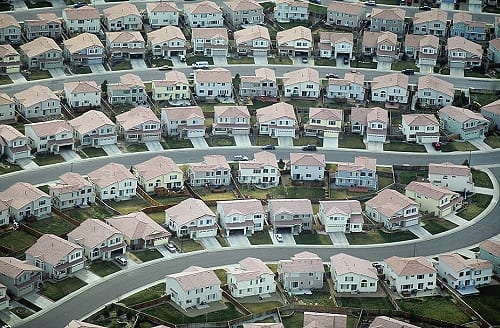
When it comes to American poverty, the landscape is changing. According to a new study by the Brookings Institution, poverty is increasing at its fastest rate in “major metropolitan suburbs,” contrary to the common idea that it is most rampant in cities.
Many factors help explain this change, not the least of which is the job market’s massive tailspin in recent years. But other dimensions are just as important: an aging suburban population, a crashed housing market, and, especially significant, a failure to develop suburban poverty relief policies. When a country thinks of its poor through the lens of a simplistic urban/rural dichotomy, it seems inevitable that lawmakers will neglect that segment of the population which doesn’t belong to either category, and needs help the most.
In the postwar era, suburbanization was encouraged and facilitated through federal programs. The predominantly white middle class was well equipped to settle beyond the city limits and take advantage of these subsidized opportunities — whether in the form of insured mortgages or subsidized infrastructure projects.
But that picture has changed. It is no longer the white middle class solely occupying the suburbs. Communities that were disadvantaged in postwar metropolitan America have since flocked to these areas, transforming demographics and tax codes. And if they don’t have the means to attract the resources necessary to lift them out of poverty — education, job opportunities, and transportation, to name a few — then the recent trend will become a festering problem.
How do we address the inequality that is so often invisible? First and foremost, we must be aware that it exists. From there we can determine the best way forward. Read an excerpt from the Brookings analysis here.
